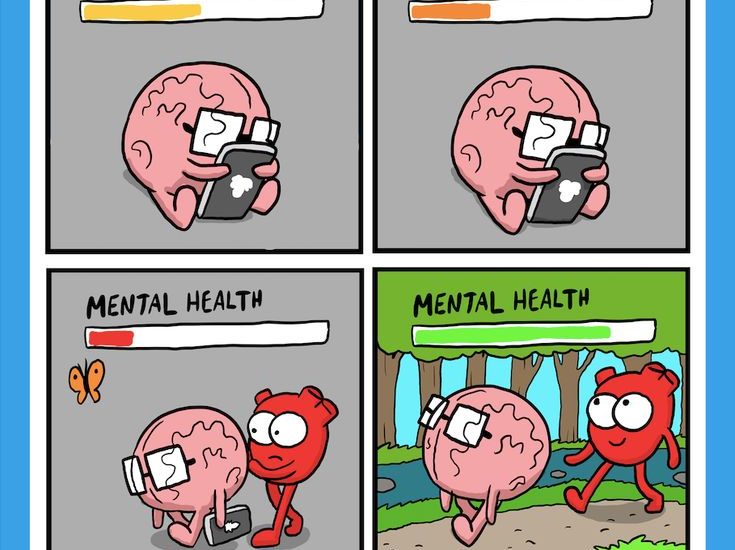Knowing how to start a conversation about mental health can feel intimidating, but it’s an essential step toward reducing stigma and supporting those who may be struggling. Open and honest discussions about mental health can foster understanding, strengthen relationships, and encourage individuals to seek help when needed. Whether you’re reaching out to a loved one or addressing your own mental health, creating a safe and supportive environment is key.
Here are seven practical tips to help you start a conversation about mental health with confidence and compassion.
1. Choose the Right Time and Place
Timing and environment play a crucial role in creating a comfortable space for discussing mental health.
How to Choose the Right Setting:
- Pick a private, quiet space: Ensure the conversation happens in a place where both of you feel safe and free from distractions.
- Avoid rushed moments: Choose a time when you can both focus without feeling pressured or hurried.
- Be mindful of their comfort: If the person seems hesitant, consider starting with a casual setting, like a walk or a shared activity.
A thoughtful setting helps create an atmosphere of trust and openness.
2. Start with Open-Ended Questions
Open-ended questions encourage dialogue and show that you’re genuinely interested in the other person’s feelings and experiences.
Examples of Open-Ended Questions:
- “How have you been feeling lately?”
- “Is there anything on your mind that you’d like to talk about?”
- “What’s been going on in your life recently?”
Avoid yes-or-no questions, as they can limit the conversation. Open-ended questions invite the other person to share more freely.
3. Use Non-Judgmental Language
The words you choose can either encourage someone to open up or make them feel judged. Using non-judgmental language is essential for creating a safe space.
Tips for Non-Judgmental Communication:
- Avoid blame or criticism: Focus on understanding rather than assigning fault.
- Use “I” statements: For example, say, “I’ve noticed you seem a bit down lately,” instead of, “You’re always upset.”
- Be empathetic: Validate their feelings by saying things like, “That sounds really difficult,” or, “I’m here for you.”
Non-judgmental language helps the other person feel heard and supported.
4. Be a Good Listener
Listening is one of the most important skills when discussing mental health. It shows that you care and are genuinely interested in understanding their perspective.
How to Be an Active Listener:
- Give them your full attention: Put away distractions like your phone or other devices.
- Use body language: Nod, maintain eye contact, and lean in slightly to show you’re engaged.
- Avoid interrupting: Let them finish their thoughts before responding.
Active listening helps build trust and encourages the other person to share more openly.
5. Normalize the Conversation
Talking about mental health should feel as natural as discussing physical health. Normalizing these conversations helps reduce stigma and makes it easier for others to open up.
How to Normalize Mental Health Discussions:
- Share your own experiences: If you feel comfortable, talk about times when you’ve struggled or sought help.
- Use everyday language: Avoid overly clinical terms unless appropriate, and keep the tone casual.
- Acknowledge that it’s common: Remind them that many people face mental health challenges and that it’s okay to talk about it.
Normalizing mental health conversations helps break down barriers and encourages openness.
6. Offer Support Without Trying to “Fix” Things
It’s natural to want to solve problems for someone you care about, but when it comes to mental health, offering support is often more helpful than trying to “fix” things.
How to Offer Support:
- Ask how you can help: Say, “What can I do to support you right now?”
- Be patient: Understand that they may not have all the answers or solutions immediately.
- Encourage professional help: If appropriate, suggest resources like therapy or support groups without being pushy.
Offering support shows that you’re there for them without putting pressure on them to act a certain way.
7. Follow Up and Stay Connected
Starting the conversation is just the first step. Following up shows that you care and are committed to supporting them over time.
How to Follow Up:
- Check in regularly: Send a text or call to ask how they’re doing.
- Celebrate progress: Acknowledge any steps they’ve taken toward improving their mental health.
- Be consistent: Let them know you’re there for them, even if they don’t open up right away.
Staying connected reinforces your support and helps build a stronger relationship.
The Importance of Starting Conversations About Mental Health
Learning how to start a conversation about mental health can make a significant difference in someone’s life. By choosing the right time and place, asking open-ended questions, and offering non-judgmental support, you can create a safe space for meaningful dialogue. These conversations not only help reduce stigma but also encourage individuals to seek help and prioritize their mental well-being.
If you’re looking for additional support, my private practice in Melrose, MA offers therapy and resources to help individuals and families navigate mental health challenges. Visit my services page to learn more about how I can support your mental health journey.
External Resources for Mental Health Conversations:
- National Alliance on Mental Illness (NAMI) – Tips for talking about mental health.
- Mental Health America – Starting the Conversation – Resources for discussing mental health with loved ones.
Start a conversation about mental health today to foster understanding, reduce stigma, and create a supportive environment for those who need it most.

